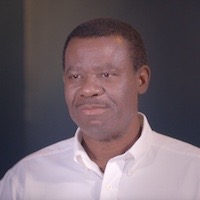My Personal Career Comeback: Five lessons learned that can benefit you too
 Have you ever had a career disappointment that shook you to your core? I did, and it was early in my career. When it first happened, I was bitter, frustrated and scared. But what I ended up learning from the experience was pivotal to my future. And to this day, I am still grateful.
Have you ever had a career disappointment that shook you to your core? I did, and it was early in my career. When it first happened, I was bitter, frustrated and scared. But what I ended up learning from the experience was pivotal to my future. And to this day, I am still grateful.
THE SITUATION:
My first job after college was at an advertising agency. Having yet to arrive at the realization of what I wanted to do with my life, I took the job because it had elements of what I studied in college: English, business and communication – and because it sounded fun and interesting. I started as an administrative assistant with the promise that it wouldn’t be long before I would be promoted into something a bit more substantive.
Turns out advertising just wasn’t my thing. The work itself didn’t pique much interest in me, but I was intrigued with the organization and the people in it. Turnover was high, morale was low, and the customer was an afterthought. I knew that all that could be changed – that something could be done to allow people to feel more alive in their jobs, to ensure that the customer was happy, that the company was growing and profitable.
So I got to work talking to people.
I interviewed smart, ambitious entry level personnel, who felt discouraged and overlooked when the jobs they were working toward were filled by people
from outside of the company. I talked to new creative staff and account executives who came in and hit the ground running, knowing little about the agency or its customer. I spoke with seasoned executives who lamented that no one seemed to
care about what was most important anymore.
I integrated all their insights, ideas and suggestions with my own observations and created a proposal to implement a program that would allow seasoned people to train and mentor newer folks, better integrate with the customer, and grow the
business from within.
Knowing little about corporate politics, I went straight to the VP of Operations with my proposal to create the program and allow me to run it. He listened intently, asked several questions, and arranged subsequent meetings with others in the company. It wasn’t long before a position was created. My boss at the time, who wasn’t impressed with my lack of passion for being an administrative assistant or the fact that I went over her head with my proposal (which I never even told her I was working on) was outraged.
She called upon her networks to put a stop to things. A few days later I was told that while the company was going to create the position and launch the
program I proposed, because of all the controversy, they could not allow me to head it up. I was crushed. I remember walking across the agency’s glossy floors and out the tall glass double doors of the building, burning with animosity, rage, and frustration at the seeming injustice of it all.
THE STRATEGY:
 In the weeks that followed, the anger and bitterness gradually released me from its grip and I began to feel a sense of calm clarity. I was onto something here. Maybe there was a way that I could work with corporations, organizations and people themselves to bring out their latent talent and harness it in a way that could contribute to a common goal. I went to the local bookstore and bought a copy of What Color is Your Parachute and dedicated myself to doing the soul searching exercises there and taking action to learn about work and potential opportunities that were more aligned with my core talents, interests and passions.
In the weeks that followed, the anger and bitterness gradually released me from its grip and I began to feel a sense of calm clarity. I was onto something here. Maybe there was a way that I could work with corporations, organizations and people themselves to bring out their latent talent and harness it in a way that could contribute to a common goal. I went to the local bookstore and bought a copy of What Color is Your Parachute and dedicated myself to doing the soul searching exercises there and taking action to learn about work and potential opportunities that were more aligned with my core talents, interests and passions.
Somewhere in my search I discovered that in many corporations there was a department called organization development that employed people to do the kind of things I tried to do at the advertising agency, and more of the kind of work that truly excited and inspired me. I began to ask around and find people who actually did these jobs. Some of them were people that friends of mine knew.
I began to interview them, asking about how they got started, what they loved and didn’t love so much about their jobs, and what advice they would have for someone like me who wanted to break into the field. At the end of every interview, I asked for the names and numbers of three more people they would recommend I speak with. I ended up building a pretty great network and it wasn’t long before one of the people I spoke with called me with an opportunity to do an internship at a local hospital in their organization development department.
I was thrilled and ended up learning the ropes from incredibly talented mentors who allowed me to take part in projects that were intriguing, challenging and incredibly rewarding. I was an intern for less than a year before I was offered a permanent position doing satisfying and empowering work I didn’t even realize was out there when I was scratching my head back in college trying to answer the question of what I wanted to do with my life. And each subsequent opportunity I have had has helped me further refine and hone what I love to do into a career that
lights me up allows me to continue to grow and evolve.
LESSONS LEARNED:
Among the many things I learned from that experience are the following:
- That defining moment led me on a search that would allow me to find ways to do more of the work that beckoned to me. It launched a chain of events that has led me to learn more about myself and make the most of experiences that would further prepare me for the work that I do now. And I am grateful – so completely and utterly grateful – that it happened, though at the time I thought it was the worst possible thing.
- Sometimes the biggest disappointments are actually precursors to the most amazing opportunities. I learned not to allow my frustration, anger and sadness (even if it is justified) to blind me to what is knocking on my door. I learned to let myself be angry for a short period if I need to and then challenge myself to figure out what positive action to take to get closer to where I really want to be. I try to focus my energy and attention into moving toward something I want rather than away from something I don’t want.
- It’s okay if I don’t know exactly what I want to do with my life. This experience taught me that anything I do will prepare me for whatever I’ll do next. I may not know exactly the kind of work that is my best fit until I see what is out there and notice what excites me and what doesn’t. If I can find a way to love the job I’m in, I will benefit by learning more about myself and developing skills that I will be able to use anywhere I go.
- I realized that I don’t necessarily have to leave my job or the company I work for to do something that I love. If I pay attention to what intrigues me and take action to align my natural curiosities and talents with the unmet needs I see wherever I am, it’s possible that the solutions I propose could land me a whole new role – one that is custom designed for me, even when there are no jobs posted on the company’s internal job board.
- I learned the importance of being willing to take a risk and let go of needing my career to turn out exactly the way I think it should. Even though I initially thought the risk I took ended in failure when I didn’t get the position I helped create, it ended up opening my eyes to opportunities I didn’t even know existed. It prepared me for a career in an organization that was far more aligned with my interests and values.
Over the years I’ve learned more about the nuances of corporate politics and the best ways to influence change that my younger, more naive self never appreciated or understood. And I’ve continued to push the envelope by proposing solutions to problems I noticed were going unaddressed (even when they didn’t technically fall within my job description). Some of these proposals panned out and yielded new and amazing opportunities, and others did not. And I probably learned more from each of those attempts than anything I studied in school.
In the end though, I realized the most vital lesson of all is that the worst (and only real) failure is failure to act – to try new things, to push yourself to realize more of your potential, and to apply it in ways that benefit others. Because as long as you have that, you can always make a comeback.
Future photo by graur razvan ionut from FreeDigitalPhotos.net.
Light bulb photo by Pixomar from FreeDigitalPhotos.net.
Open mind photo by Idea go from FreeDigitalPhotos.net.

